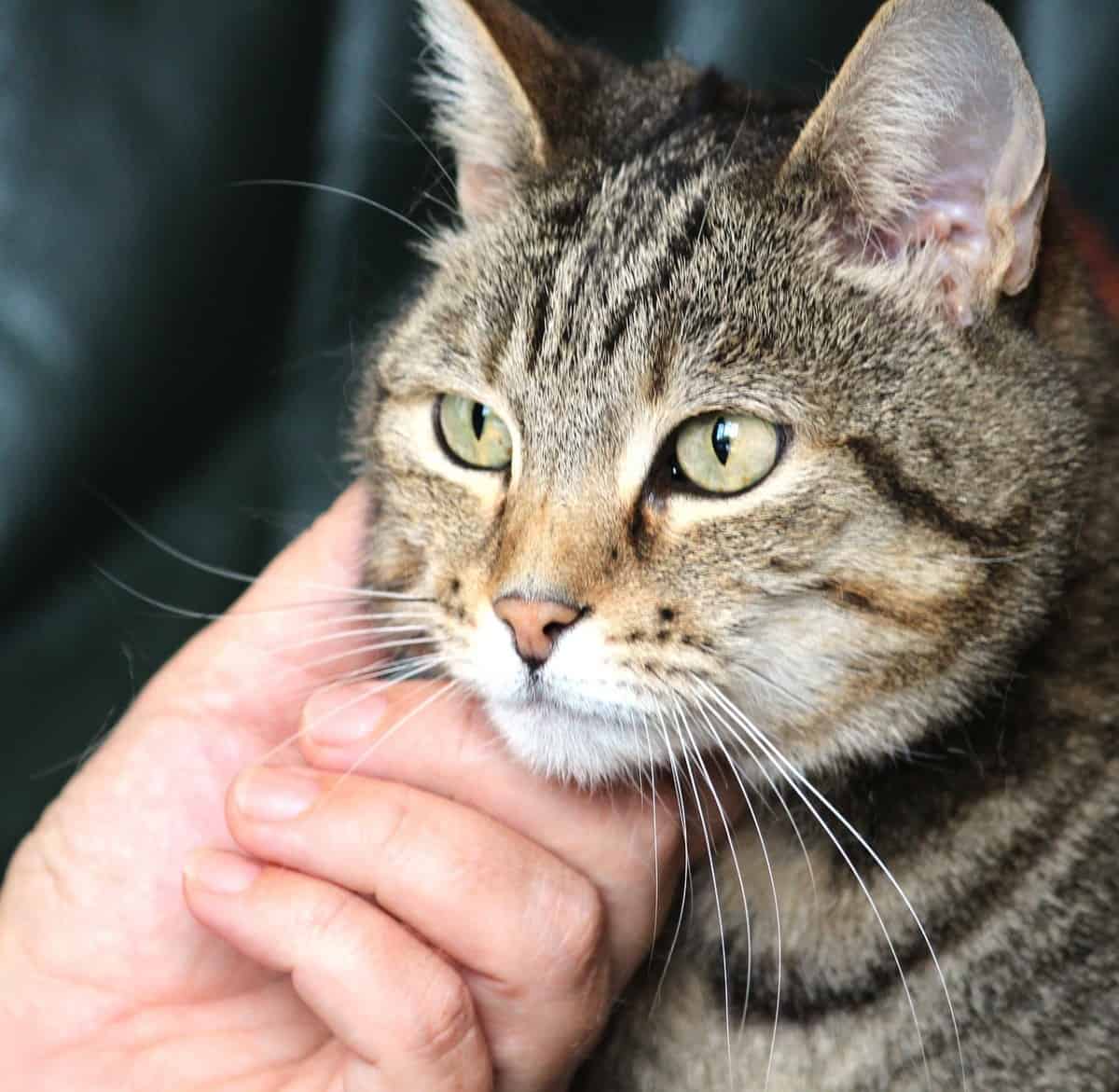Cats get excited and may display greeting behaviors when their owners come home, according to veterinary behaviorists. But don’t be disappointed if your cat does not greet you as a dog might, or if your cat doesn’t greet you at all. The science says the cats still love you.
In this article, I’ll explain the science and meaning behind your cat’s behavior when you walk through the door after being gone for some time. And you’ll soon understand why cats do get excited when you come home.
Why does my cat get excited when I come home?
Cats get excited when you come home because they know they’ll receive affection or maybe even food when you walk through the door, depending on your routine. Cats are excited by the idea of security and comfort as well, which you, their owner, provide. When you arrive home, they’ll be excited by all of this and then some.
Cats are creatures of habit, so certain human behaviors that make them feel good will be locked into their memory – both the time and the place that the behavior occurs.
How do I know if my cat is excited?
If your cat is excited, it will display different kinds of body language which can depend on the breed of cat you keep.
Generally, an excited cat will be focused on whatever it’s excited about – in this case, your arrival home – and will be alert and responsive to you.
Your cat will face you and have an alert, upright posture. As with humans, your cat’s eyes may widen, pupils may dilate, and ears will likely be pointed upwards.
What does it mean when my cat meets me at the door?
When your cat meets you at the door, it means they are excited to see you. Their excitement could stem from a number of things that happen once you arrive, including playtime, affection, or feeding time.
Cats can anticipate your arrival when you’re nearby because they can hear you coming. They have excellent hearing and can detect more sounds than dogs, according to Locust Valley Veterinary Clinic, a pet hospital in Locust Valley, New York.
When your cat hears you coming, they understand that those specific sounds mean your impending arrival is near. If your cat knows you will be arriving soon, they will make their way to your door to be the first to greet you.
But even if a cat can’t hear you coming, they may still saunter to your front door due to routine. Cats are very good at remembering certain human behaviors that happen at specific times of the day. Just as they know when it’s dinner time, they also know when you’re coming home.
Along this line, cats know when there’s affection to be had. If you make it a habit to pet your cat when you arrive home, they’ll look forward to this activity every day.
What if my cat does not get excited when I come home?
Don’t be worried if your cat does not get excited when you come home or does not meet you at your front door. Cats all show excitement in their own way, and scientifically speaking, cats are not known to make animated showings of emotion.
An indifferent cat does not mean that the cat is not excited to see you. Look for other cues of your cat’s general wellbeing and happiness.
Cats will greet strangers differently, of course, because they haven’t developed trust with that stranger. Next time you’re upset about your cat’s indifference when you come home, pay attention to how it treats new guests. You will quickly recognize that the cat treats you and that guest differently and is just showing its excitement toward you in a more subdued way.
To see examples of how various cat owners report their cats greeting them each day – or not greeting them at all – read these testimonials from Catster, the world’s most widely read cat magazine.
In what other ways do cats show excitement?
Cats show excitement in ways that are synonymous with behaviors that it shows when it’s happy. Look for these tell-tale signs that your cat is excited.
- Your cat rubs its head against your leg, also called bunting
- Your cat is vocal with you, offering meows, purrs, and chirruping
- Your cat holds its tail up high, has wide eyes, and sometimes rolls around when it sees you
- Your cat grooms in front of you and uses the litter box as trained
Why do cats and dogs show excitement differently?
Cats show excitement differently than dogs because of the nature of their species.
Cats show excitement in many subtle ways, and you should know that these anticipatory behaviors look different than the behaviors of other house pets, like dogs, which make it very obvious that they’re happy to see you.
A cat will display behaviors that accept you as part of its social group. And to be accepted into a cat’s social group is a big deal!
Wild cats do not allow interaction with strangers. They must gradually warm up to anyone, and any animal, that is not part of their social group. This explains your cat’s behavior toward new house guests.
If a cat displays behaviors similar to dogs when it’s exciting, there’s nothing wrong with your cat. It’s simply behaving outside of the norm for its species.
Cats exhibit excitement in different ways than other house pets. Often, cats get excited when you come home because they’re anticipating affection and food. But if your cat does not get excited, know that it’s not outside their nature. Cats, like humans and pets, are all different, and their personalities are, too!
[su_box title=”Affiliate Disclosure”]This website is supported by its readers. Please assume that all links are affiliate links. If you make a purchase from one of the links we will make a commission from Amazon. Thank you.[/su_box]




